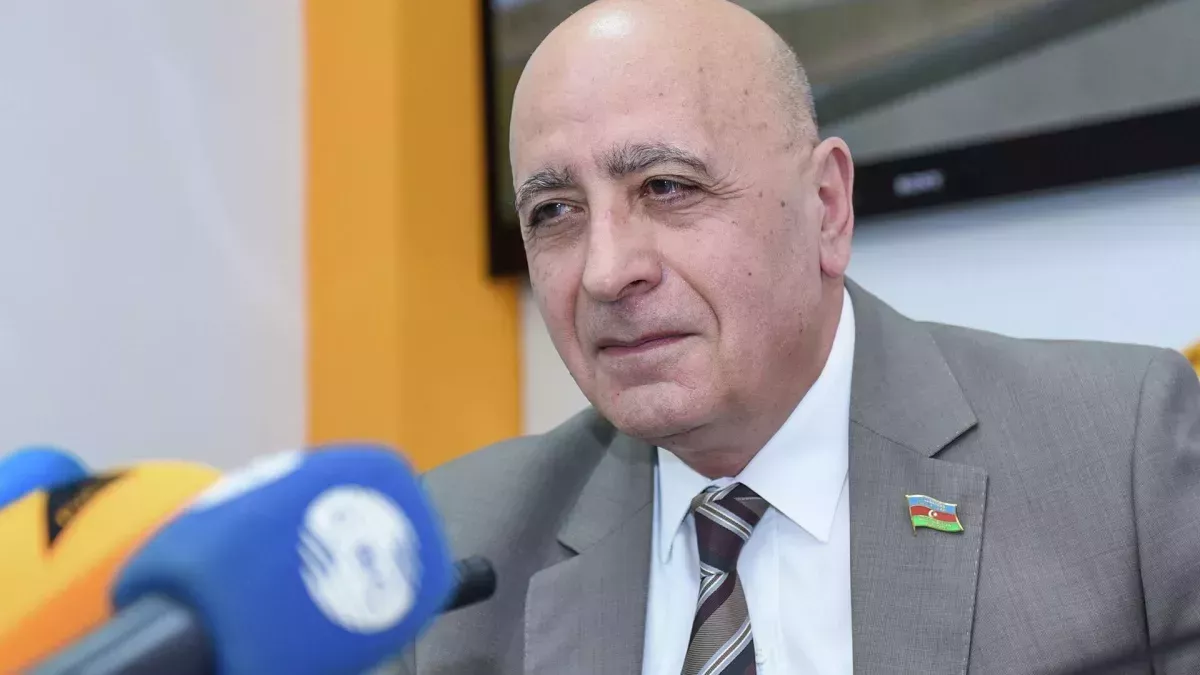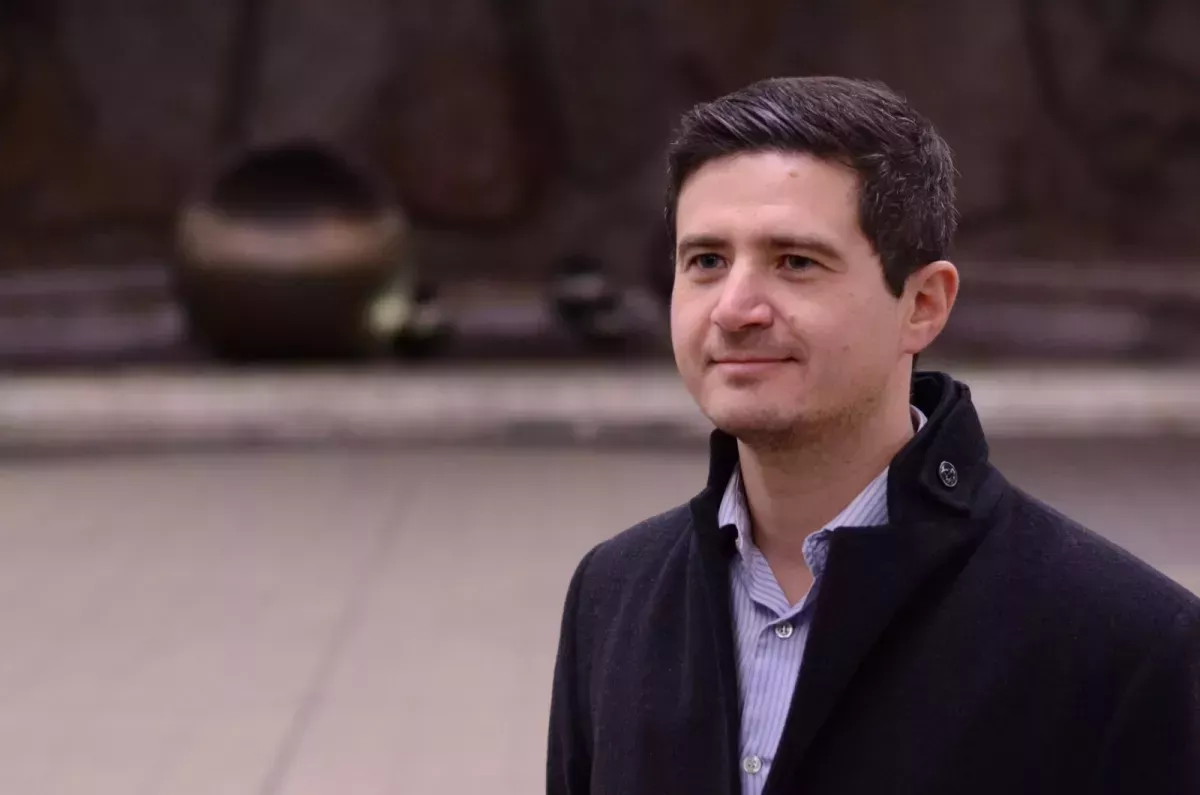"Paris realises the futility of pressuring Baku" Expert opinions on Caliber.Az
It seems that France has decided to shift its approach toward Azerbaijan, moving from a confrontational stance to one focused on restoring political dialogue. This shift was evident at the European Political Community summit in Denmark, where Presidents Ilham Aliyev and Emmanuel Macron met for the first time in a long period—an encounter reportedly initiated by the French side.
What is driving Paris to engage in dialogue with Baku? What does the future hold for Azerbaijani-French relations after a period of such serious cooling? Caliber.Az sought answers to these questions from Azerbaijani, Israeli, and Belarusian expert analysts.

According to Azerbaijani MP and political scientist Rasim Musabayov, the meeting in Copenhagen—held not as a brief encounter but as full-fledged negotiations between President Macron and the French delegation on one side, and President Aliyev with the Azerbaijani delegation on the other—indicates that the cold distance and even hostility in relations between the two countries may be a thing of the past.
“The initiative to create tension in the French-Azerbaijani track came from President Macron. He tried to play the role of some kind of boss in the South Caucasus, telling Azerbaijan, Armenia, and Georgia how to live, build relations, and solve problems. However, his ‘instructions’ were categorically rejected—not only by Azerbaijan. The Georgian government also made it clear to France that such attempts to impose advice were inappropriate. Even Pashinyan politely listened to Macron but realised that relying on the words of this, let’s say, poseur was hardly advisable, and despite any ‘instructions’ from the French leader, he preferred to engage in direct negotiations with Azerbaijan,” the expert said.
According to Musabayov, it was precisely through direct dialogue that Baku achieved the successes leading to the initialling of the peace treaty text.
“President Macron’s policy against Azerbaijan has failed. All French initiatives to push some anti-Azerbaijan resolution through the UN Security Council were successfully neutralised by Baku, including with the support of countries belonging to the Non-Aligned Movement,” the expert emphasised.
He also noted that France suffered tangible damage due to its exploitation and control of colonial territories.
“All of this ultimately led to a pragmatic rethinking of French policy and the realisation of the futility of a course aimed at pressuring Azerbaijan. I hope that prudence has prevailed, taking into account the interests of French business and the reactions of other states—primarily Italy, Hungary, Romania, Germany, and the United Kingdom. The French president understood that he could not impose a policy of hostility toward Azerbaijan on Europe or organise any pressure to force others to follow the unnecessary advice coming from the Élysée Palace.
In my view, the leaders’ meeting in Denmark marked the end of an era of Azerbaijani-French misunderstanding and confrontation, and I believe we can even speak of opening a new chapter in our relations. Azerbaijan has no motivation for conflicts with France, but it is also unwilling to tolerate the antics of the French president, his attempts to lecture, advise, and interfere in the affairs of the South Caucasus,” the political scientist stressed.
Azerbaijan is also very important to France for another reason: Paris is seeking access to uranium in Kazakhstan and Uzbekistan, and regardless of the circumstances—if the French side manages to establish supply routes—its transportation would go through Azerbaijan.
“I believe that Paris is fully aware of the situation. France has been sidelined in Africa; it cannot purchase uranium concentrate from Russia, so Central Asia remains, and for strong ties there, good relations with Azerbaijan are essential. All of this, I think, is being carefully considered and also influences the normalisation of French-Azerbaijani relations. In any case, even if past trust is not fully restored, a certain level of civilised relations can still be re-established,” Musabayov concluded.

Meanwhile, Israeli journalist and publicist, head of the International Relations Commission of the Union of Journalists of Israel, Rostislav Goltsman, noted that the French side deserves credit for taking conscious steps toward normalising relations with Azerbaijan.
“We remember how, not long ago, Paris pursued a policy aimed at escalating tensions with Azerbaijan, and it was entirely artificial. After Azerbaijan’s victory in the 44-day war and the restoration of the country’s territorial integrity, it became clear that the conflict was over, and Yerevan realised that if it wanted to pursue the path of peace, there was no need to invent reasons to inflame the situation. They agreed to terms that had previously seemed impossible to the Armenian side. As a result, decisions were made in Yerevan that Paris did not expect from the Armenian authorities—they recognised Azerbaijan’s territorial integrity and agreed, for the sake of peace, to reconsider certain provisions of the Armenian constitution. Consequently, Paris began to understand that it had made a mistake in creating tension in its relations with Azerbaijan,” the political scientist said.
He emphasised that, in recent times, the Fifth Republic has made numerous foreign policy miscalculations, and the process of improving relations with Baku was influenced by a range of factors, including France’s domestic political situation.
“Attention should be paid to public opinion polls. Macron’s popularity began to fall catastrophically, prompting the French leader to reconsider some of his political ambitions and strategies,” the expert stressed.
The political analyst also noted that after the initialling of the peace agreement—which was reinforced by guarantees from President Trump—the situation moved into a legal framework.
“Now, there are simply no reasons for confrontation between France and Azerbaijan. Paris should recognise the reality of the situation: Azerbaijan’s status on the international stage has changed—its position has strengthened. Therefore, it is time to end this unreasonable story instigated by Paris,” Goltsman concluded.

For his part, Belarusian political scientist and chief expert at the Centre for Analytical Forecasting, Alexey Chernov, argued that Macron has once again overestimated his capacity to apply political pressure—this time on Baku.
“The French president is a politician of words, not actions. Paris lacked the skill and determination to manage its own colonies, and this political fiasco will continue to affect Macron even after his presidential term ends. He weakened France’s image on the international stage and completely ‘spiralled’ when he decided to intervene in the South Caucasus and try to seize the initiative from other regional players. While Macron was making various loud statements, Baku was acting—refining its political resources and connections, developing its international strategy.
As a result, within a few years, Azerbaijan became a major energy partner for Europe and a moderator of important political processes in Eurasia, gaining a significantly different weight and status—while Macron’s standing rapidly declined. Ultimately, Baku became strong and cohesive enough to consolidate an entire coalition of French colonies against Paris, which was undoubtedly a shock to Macron’s political grandstanding, and not just him. The disruption of French positions became too serious in several regions where Azerbaijan began playing a key role, for example, in the Middle East. Therefore, it can be stated with full confidence that Baku served as a serious political trigger for Macron’s career, and the French leader was looking for an opportunity to reverse the situation,” Chernov stated.








